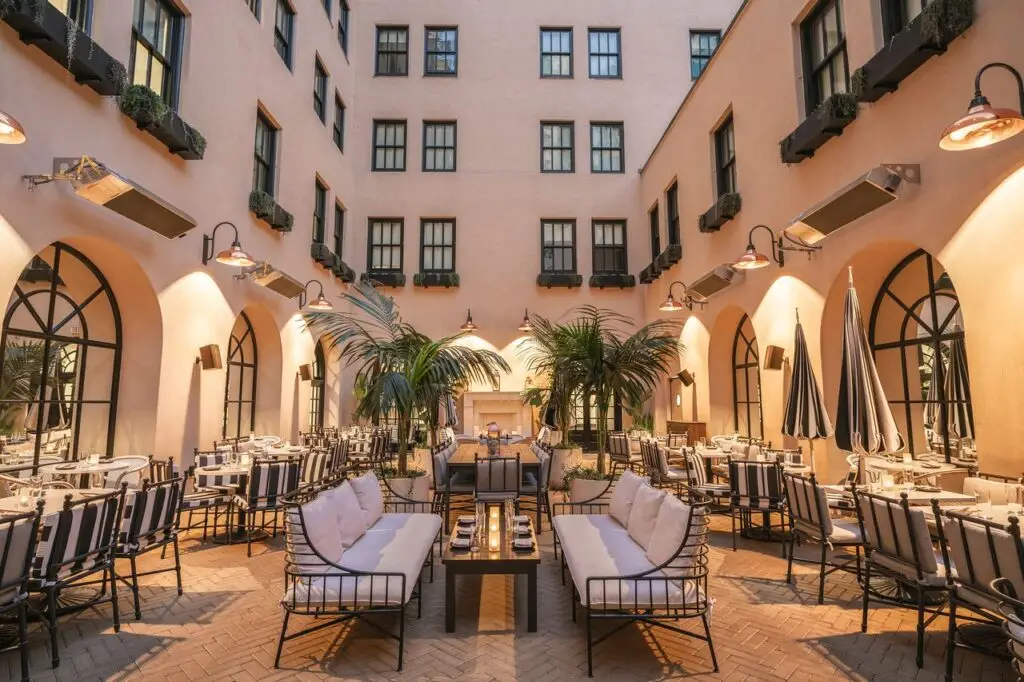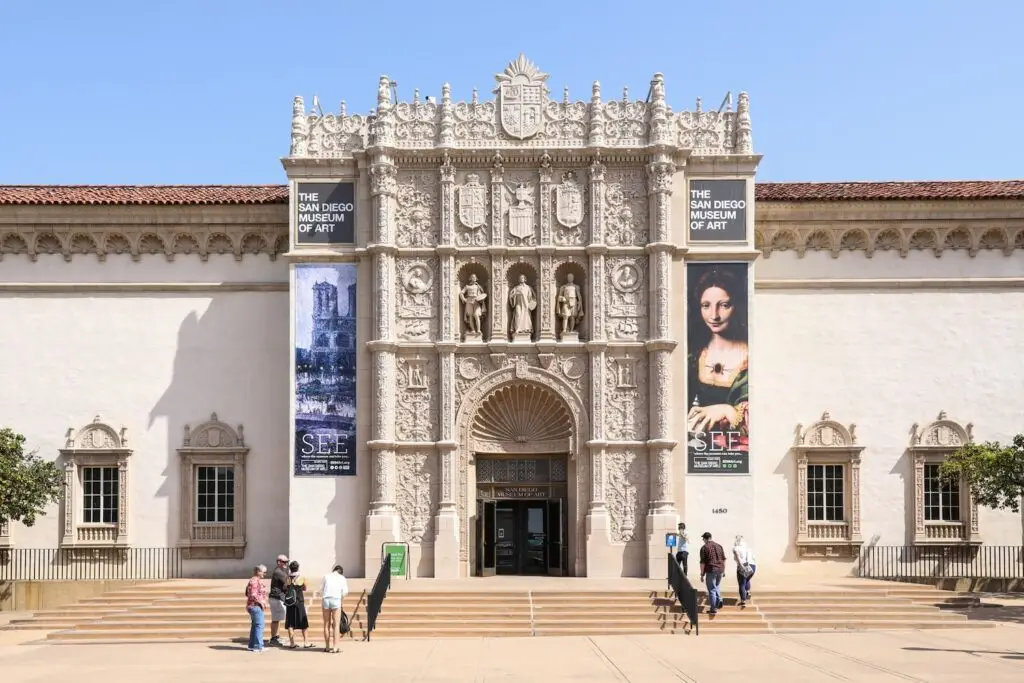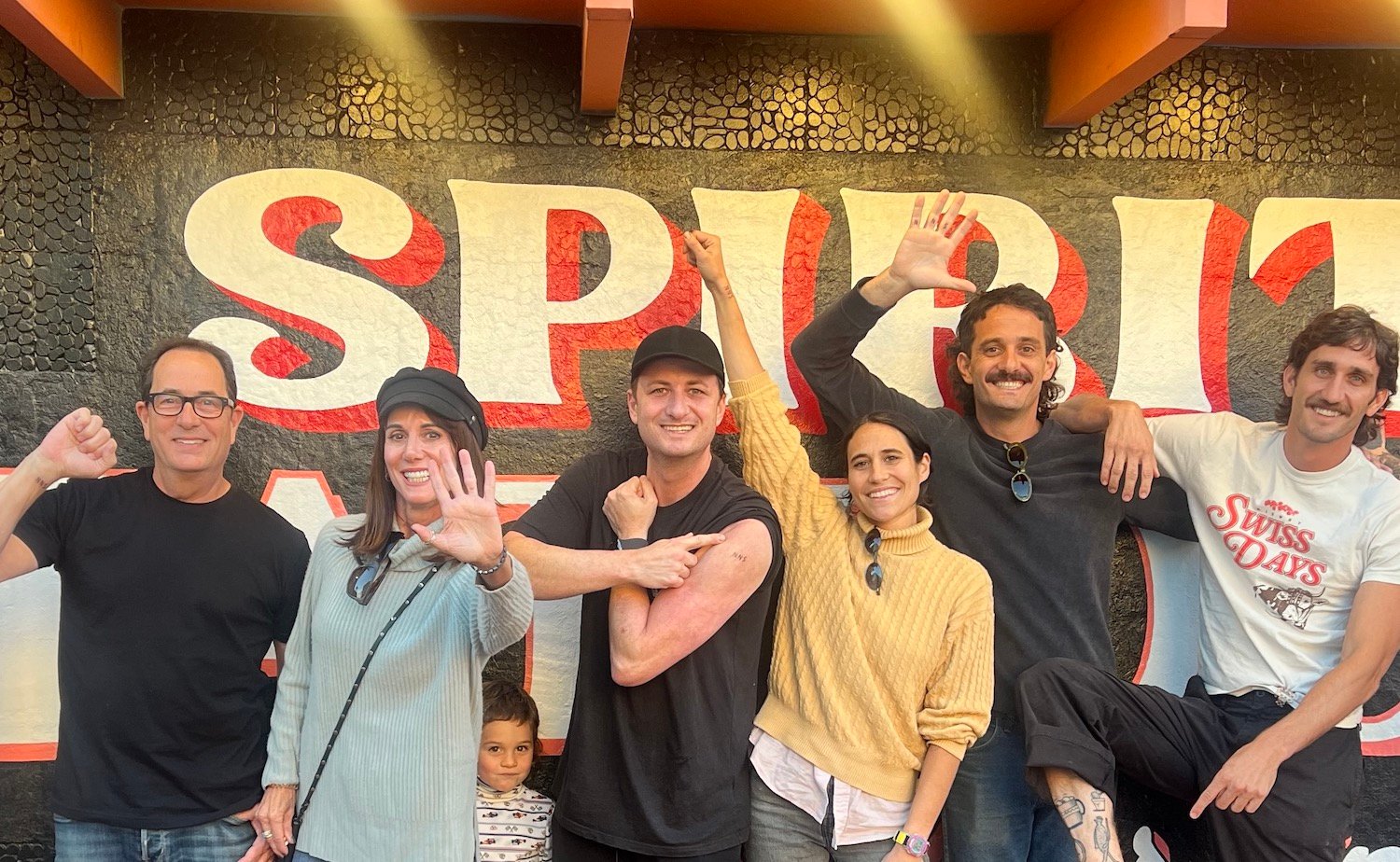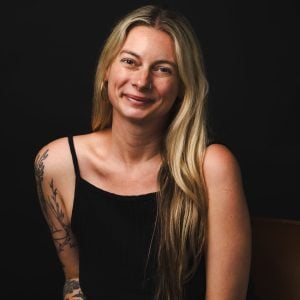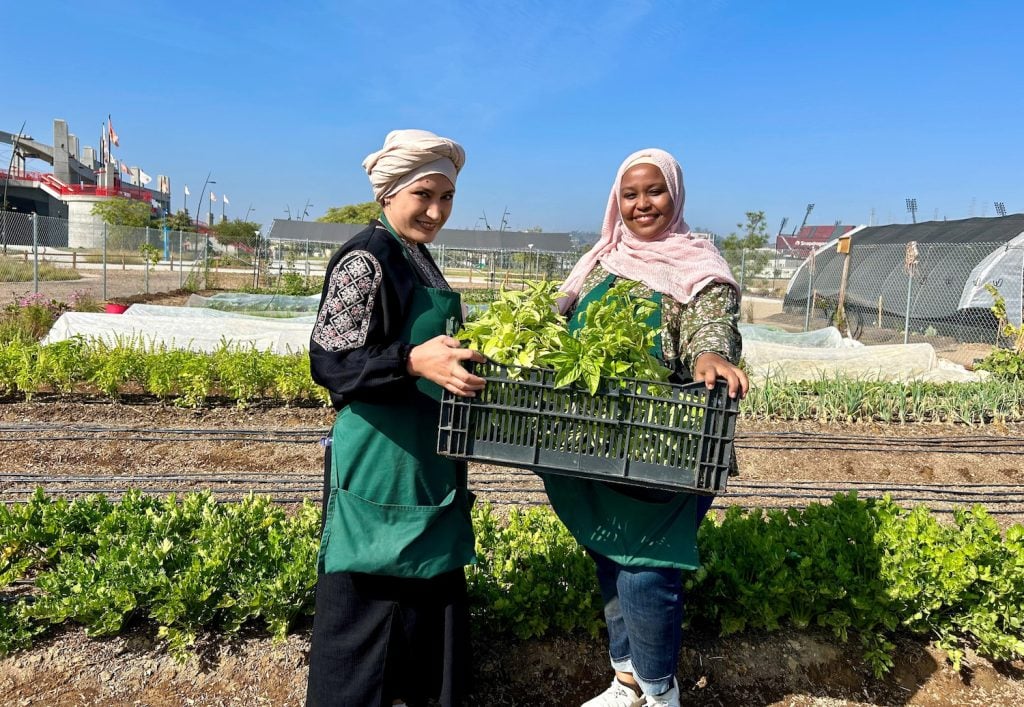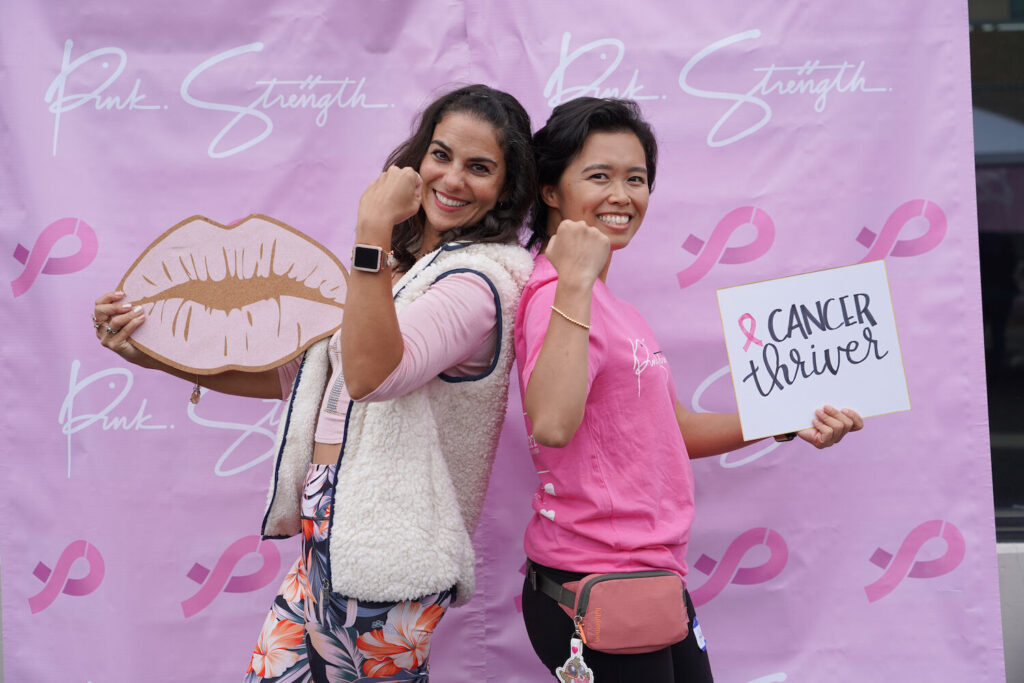Like many women, Kelly Zien never thought she’d be part of the breast cancer community, let alone speaking about patient advocacy to a lunch crowd. She was diligent—annual mammograms, no family history, no warning signs. Then, last August, she got the call. The one that turns the world on its axis and makes time both speed up and slow down in impossible ways. “You have breast cancer,” said the voice on the other end of the phone.
She had no symptoms, nothing she could feel. But there it was, this alien presence, confirmed through a biopsy after a routine screening. What followed was a crash course in survival—appointments, scans, decisions. And standing beside her every second was her husband, Sam Zien. You might know him as “Sam the Cooking Guy,” but in those months, he was something else entirely: her full-time caregiver, her rock, who ensured the meds were on schedule and the pillows were just right.
“There’s this spot at Scripps La Jolla, right before you go into surgery, it’s called the ‘kissing square,’” Sam says. “That’s where you say goodbye. I gave Kelly a hug, she walked through those doors, and she took a selfie—huge smile, even though she was terrified.”
That photo went to their family group chat, where one of their kids immediately responded, “There’s Coco—never not smiling.” Coco, Kelly’s grandmother, was known for her unshakable optimism; in that moment, it was clear the trait had been passed down. It stuck. Soon enough, “Never Not Smiling” became a mantra in the Zien household, a reminder of Kelly’s resilience.
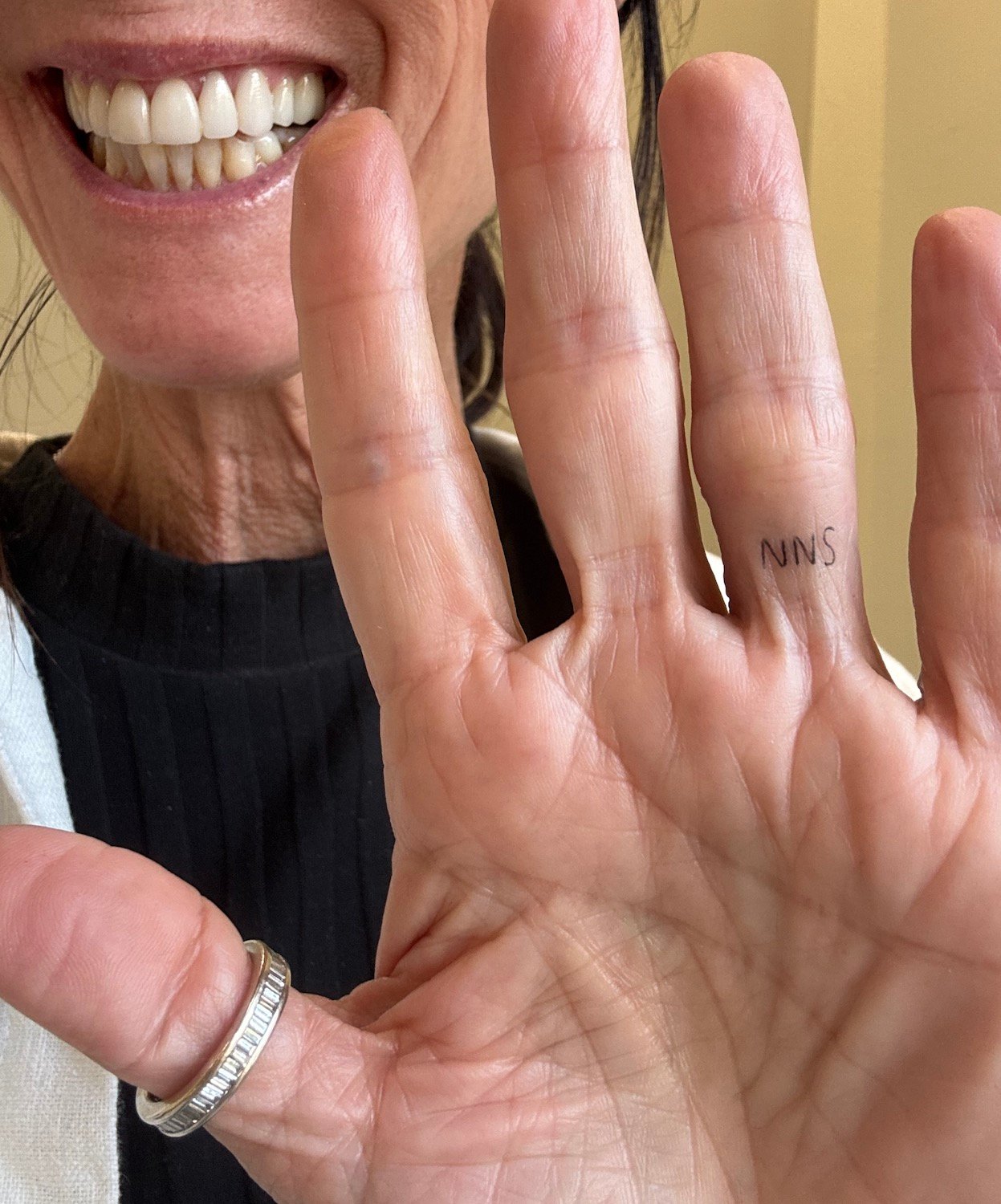
It resonated so deeply that they all got it tattooed, except Kelly went first, shocking everyone. “The boys had been pushing for a family tattoo forever, and I was always like, ‘Nope, not happening,’” she laughs. “And then I just went and did it. It felt right.”
Her daughter-in-law, Moni, saw that strength firsthand. “We have seen you take on this diagnosis in a way that has inspired us and taught us so much,” she wrote in a message to Kelly during her recovery. “From the outside, you appear utterly fearless, yet I imagine it’s that very fear that drives your tenacity. You are giving 100 percent of yourself to this battle, and it’s empowering.”
That battle led Kelly to a double mastectomy, a decision she made quickly after consulting with doctors, knowing she wanted to eliminate as much future risk as possible. “Why would I want to look over my shoulder for the rest of my life?” she says. “I just wanted it gone.”
Unlike many, Kelly didn’t need chemotherapy or radiation—her early detection meant surgery was enough. By October, her doctors were telling her she was cancer-free. “It felt like I had cancer for two months and then it was over,” she says. “Which is a strange thing to say, because it never really feels over. It’s always in the back of your mind.”
Even though she avoided the grueling long-term treatment many breast cancer patients face, the experience changed her. She had incredible doctors at Scripps, a support system, and a husband who took caregiving to a level she never could have anticipated. But what about the people who don’t? What about the single mom with two kids? The person with no one to drive them home? The woman who has to decide between paying rent and getting treatment?
That’s where patient navigation comes in—a service that should be standard in every cancer diagnosis. The Susan G. Komen Foundation’s Patient Care Center (PCC) exists to fill these gaps, providing no-cost telehealth navigation and financial assistance. The numbers are staggering: 200,000 breast cancer patients in the U.S. live at or below 300 percent of the federal poverty level, according to the foundation, often delaying or forgoing treatment because they simply can’t afford it.
Navigation isn’t just about finances—it’s about guiding patients through a labyrinthine medical system. “You don’t know what you don’t know,” Kelly says. “What questions to ask, what options you have, how to advocate for yourself.” Komen’s navigators help patients get quicker access to treatment, reduce distress, and ensure no one has to go through cancer alone.
On March 21, she and Sam will bring their story to the Susan G. Komen Impact Luncheon at Mister A’s, a first-of-its-kind event designed to spotlight the power of patient navigation and raise crucial funds for breast cancer support. “I love a good party, but this is more than that,” Kelly says. “It’s about education. It’s about ensuring that if someone gets the call I did, they have every resource they need.”
Her role has shifted from patient to advocate, a transition that, in true Kelly fashion, feels completely natural. “I have a platform, I have a voice,” she says. “If sharing my experience helps even one person get their mammogram on time, or one caregiver feel seen, then it’s worth it.”
Sam, ever the devoted partner, has his own take. “People kept saying how great I was for being there,” he says. “But what else would I do? We’ve been married a long time. It’s what you do.” He says it matter-of-factly, reflecting the deep covenant between them and revealing while talking how they have barely spent an evening apart during their years together before pausing to add one more revelation.
PARTNER CONTENT
“But you know what I did learn? Caregivers need support, too. That’s something no one talks about,” Sam says.
They’re talking about it now. And come March, they’ll be doing something about it, too. Because, in the end, this isn’t just about Kelly’s journey. It’s about thousands of people walking the same path—some with partners, some without, and all facing impossible choices. The Susan G. Komen Impact Luncheon isn’t just a fundraiser. It’s a chance to make sure no one walks that road alone. If Kelly has anything to say about it, they’ll also be walking with a smile.

